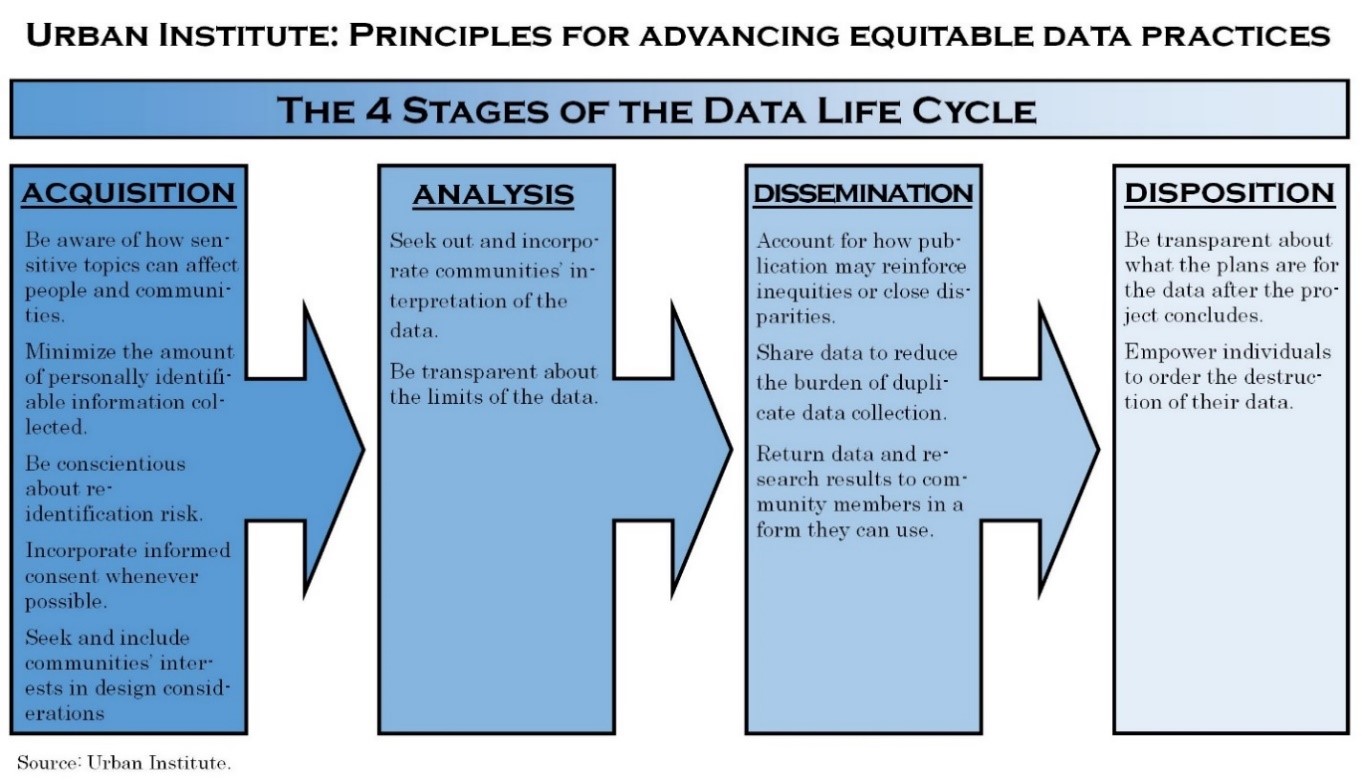Over the past few years, a heightened awareness of the importance of racial equity and justice has permeated the political conversation. American institutions, businesses, and communities are taking a closer look at their roles in this context. Increasingly, policymakers are applying an equity lens to their decision-making processes. Evidence-based research has become a prevailing tool in providing state leaders with the data to evaluate programs and policies and to best allocate resources to the most efficient policy strategies. However, it is becoming increasingly vital to take into context the sources from which the data derives, how it is being collected and analyzed, and which populations have access to the research. This emerging field of data equity is growing in importance and going to be a focus of our work at the New Jersey Policy Lab.
“The term ‘data equity’ … refers to the consideration, through an equity lens, of the ways in which data is collected, analyzed, interpreted, and distributed” (Lee-Ibarra, 2021). It encourages further inspection into potential racial bias of research instruments, publication’s role in the reinforcement of stereotypes, and marginalized communities’ ability to control and access their own data. It also cautions against data misuse and inaccurately broad generalization. Data equity also considers issues regarding power and privilege between researchers and their targeted populations and concerns that harmful decisions might be justified through data.
The Urban Institute, a non-profit research organization, suggests best practices for examining research through an equitable lens (Gaddy & Scott, 2020). By looking at each step in the data life cycle – from data collection to its disposal – the Urban Institute identifies data equity methods that promote the principles outlined by the Belmont Report (1978): beneficence, respect for persons, and justice.

Chicago Beyond, an impact investment group, in their data equity guidebook Why Am I Always being Researched? (2018), identifies seven inequities held in place by power that are can also be opportunities for change. It is important for researchers to monitor power dynamics and seek opportunities for equity in their projects.
 Access: Could we be missing out on community wisdom because conversations about research are happening without community meaningfully present at the table?
Access: Could we be missing out on community wisdom because conversations about research are happening without community meaningfully present at the table?- Information: Can we effectively partner to get to the full truth if information about research options, methods, inputs, costs, benefits, and risks are not shared?
- Validity: Could we be accepting partial truths as the full picture, because we are not valuing community organizations and community members as valid experts?
- Ownership: Are we getting incomplete answers by valuing research processes that take from, rather than build up, community ownership?
- Value: What value is generated, for whom, and at what cost?
- Accountability: Are we holding funders and researchers accountable if research designs create harm or do not work?
- Authorship: Whose voice is shaping the narrative and is the community fully represented?
Many resources abound to aid policymakers in applying equitable practices to their understanding of research and data reports in their fields. The following table provides toolkits and tip sheets for state education agencies, community planners, and those conducting focus groups and survey research.
Education:
State education agencies can use this toolkit to identify available and relevant equitable access metrics, analyze the policy implications of these data, and present the findings to a variety of audiences effectively.
Center on Great Teachers & Leaders at American Institutes for Research
Moving Toward Equity Data Review Tool
Community Planning:
Community mapping provides equitable development practitioners with accurate and unique information, effective visual tools, and the ability to understand and share their own experience in the context of their changing environment.
PolicyLink
Community Mapping Equitable Development Tool
Survey Research Design:
This tip sheet provides best practices to minimize cultural biases in survey design.
Focus Group Design:
This tip sheet offers advice for designing focus group interviews with equity in mind to obtain the best information possible.
Racial Equity Tools
As evidence-based research becomes more of a driving force in policymaking, it is important to implement equitable data practices in ensuring policy decisions will best benefit target populations, including marginalized and underserved communities. Each stage of the data process should be carefully developed and instituted with an eye toward minimizing racial biases and inequities and promoting more inclusive and culturally-representative data. The New Jersey Policy Lab will continue to prioritize equity in its research and encourages other institutions to do the same.
References:
- Chicago Beyond. (2018.) Why Am I Always Being Researched? Chicago Beyond. https://chicagobeyond.org/researchequity/
- Gaddy, Marcus, & Scott, Kassie. (June 2020.) Principles for Advancing Equitable Data Practice. Urban Institute. https://www.urban.org/sites/default/files/publication/102346/principles-for-advancing-equitable-data-practice.pdf
- Lee-Ibarra, Joyce. (July 2, 2021.) Data Equity: What Is It, and Why Does It Matter? Hawaii Data Collaborative. https://www.hawaiidata.org/ideas/2020/7/1/data-equity-what-is-it-and-why-does-it-matter
- National Commission for the Protection of Human Subjects of Biomedical and Behavioral Research. (1978). The Belmont Report: Ethical principles and guidelines for the protection of human subjects of research. [Bethesda, Md.]: The Commission. https://www.hhs.gov/ohrp/regulations-and-policy/belmont-report/index.html[/fusion_text][/fusion_builder_column][/fusion_builder_row][/fusion_builder_container]
